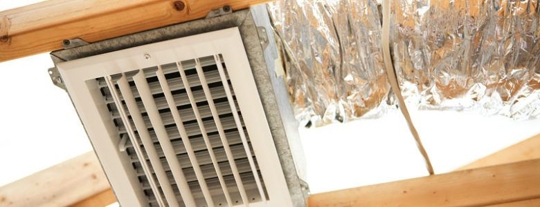When you adjust the thermostat during the hot summer months to create a cool, comfortable home interior, the last thing you expect is for strange smells to issue forth from vents. You might chalk it up to the system lying dormant for several months at a stretch, especially if you don’t schedule regular appointments for AC and furnace cleaning, but if foul odors persist, you could have more serious problems on your hands.
What are these odors and what do they mean? How can you tell if your AC unit is blowing dust out of long-unused vents or if you’re dealing with an odor that could pose a health risk for you and your family? Here are a few common vent smells that could be linked to your AC and what they might mean.
Mustiness
A dry, dusty odor is normal if you haven’t turned on the furnace or the AC in a while – dust can settle in the ducts over time. It could also be an indication that it’s time to change out your filters.
If the odor you smell is more musty than dusty, though, there’s a chance you’re dealing with moisture and its byproducts – mold and/or mildew. Since this can be harmful to your health and lead to respiratory conditions, you need to nip it in the bud by calling in professional duct cleaners or possibly mold remediation specialists.
Burning/Acrid Odor
You might expect a burning odor when you crank up the furnace or if you haven’t had a dryer vent cleaning in a while, but not so much when you turn on the AC. However, if you do smell an acrid or burning odor, it could mean that electrical components are overheating at the risk of starting a fire.
Turn off your AC immediately if you smell an acrid or burning odor, check to make sure there are no indications of fire, and call in professional help to check your AC unit and ductwork for the cause of the odor.
Rotting Animal
There’s no mistaking the smell of a rodent corpse in the ductwork, and this gag-worthy scent can linger for months if you don’t get rid of the carcass immediately. What’s worse, it can definitely be a health hazard.
The good news is that such occurrences are rare. Even if there are live animals in your vents, however, you don’t want to risk the airborne diseases that could result from their waste. If you suspect pests in your ductwork, alive or dead, contact residential and industrial cleaning services in your area that are qualified to treat your fouled ductwork.

